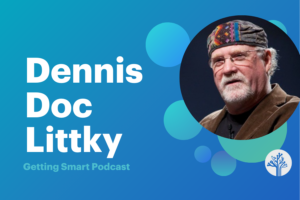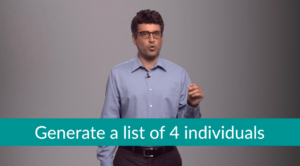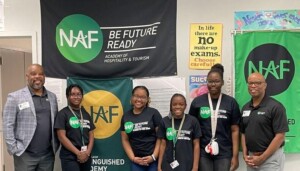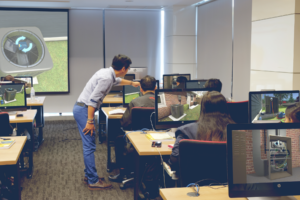Interview: Mike Magee, CEO, Rhode Island Mayoral Academies
Rhode Island Mayoral Academy breaks a big bureaucratic logjam.
I don’t see RIMA in terms of breaking or fixing existing systems but rather in terms of building new ones – how the existing systems respond to that is really up to the people who operate them. I think Mayor Dan McKee and I (and everyone involved in our effort) see what we’re doing as a public responsibility that can’t wait. Rhode Island desperately needs better public schools for a large percentage of its student population. We have a plan and an opportunity to build them. It’s true that what we’re building is significantly less bureaucratic, a decentralized approach to school networks that matches a high degree of flexibility and autonomy with a high degree of accountability. I have no doubt that what we’re building will be relevant to traditional school district governance and we’re open to having those conversations but also very focused on what we can control.
Does Mayor Fung have some breaking new school news?
Mayor Fung sits on RIMA’s board. He is someone who really understands the issues and is completely committed to creating great public school options for the families he represents. RIMA has signed a Letter of Intent to partner with Achievement First to open schools enrolling students from his community, Cranston (the third largest city in our state), as well as Providence. We’re working with Dacia Toll and Reshma Singh (AF’s Director of Rhode Island Expansion) to meet a number of final requirements so that our respective boards will be 100% confident moving forward with a plan to open the first Achievement First mayoral academy in August 2011. Mayor Fung will chair its board.
Another thing we’re excited about is RIMA’s first facilities development project for Democracy Prep Blackstone Valley, the first mayoral academy. This is a $4 million project on a permanent elementary school facility. We’re testing whether we’ll be able to provide facilities solutions for all of our CMO partner which would remove an enormous barrier to entry in RI. And we’re optimistic.
Is there an endless pool of capital available for bringing charters to scale?
Not as far as I can tell! But we have been lucky to raise a significant amount of funding in our first year and I think our funders see their support of us as very high-impact. Whether we’re talking about the extraordinary achievement of students in mayoral academies (two full grade levels of growth in reading, on average, in Democracy Prep’s first year) or the innovative models we create to support our schools, funders are impressed with the outcomes.
To achieve the kind of ambitious growth we have in mind, we still need to make major investments in facilities solutions and teacher and leader development. We think we have an excellent plan to develop a finite number of private facilities while working in parallel with the mayors to make empty and underutilized public facilities available to mayoral academies. And we’re currently working with the education policy organization Public Impact on a very exciting, comprehensive human capital development strategy. Interested funders should contact me immediately. ![]()
Kids are tapped into new media. How do we incorporate tech used outside of school to fostering learning inside?
I must admit that I am skeptical much of the time when I listen to people talk about leveraging technology in the classroom. I think this has less to do with the possibilities of technology than it does with the quality and practicality of the ideas. I also worry that technology is presented as a panacea in classrooms that lack great teachers. That being said, there’s no doubt that schools should be doing a much better job implementing technology in the classroom. I think the “low-hanging fruit” is around cost-containment and differentiated learning. I anxiously await the death match between Apple and the textbook companies. And I like the idea of dynamic classrooms where technology makes possible all kinds of differentiated and self-directed learning, so long as a great teacher is conducting that orchestra and everyone is being held accountable for the results.
How are teachers assessed? Are your partners using performance pay?
We expect that most of our CMO partners will have developed their own highly effective teacher evaluation systems though there may be an opportunity down the road to work with new school operators to develop their systems based on best practices. Democracy Prep Public Schools has a really superb, comprehensive teacher evaluation rubric; likewise, Achievement First. At Democracy Prep Blackstone Valley teachers are eligible for performance bonuses up to 9% of base salary. I think most great schools have sophisticated ways to monitor teacher effectiveness and support and encourage continuous improvement. Another model I’ve been especially impressed by is Boston Collegiate’s classroom observation model.
Whatis your vision for the way data should be used to build effective schools?
Data should be used to drive the thinking of teachers, school leaders and policy makers towards continuous improvement. What’s working? What’s not? What’s the best way to move forward? Good data prevents us from deceiving ourselves when things aren’t going well. It allows us to replicate what’s working in close to real-time. It enables a very rich conversation among teachers and school leaders about how to ensure that every student in the building reaches his/her full potential. We see this in action at a school like Democracy Prep Blackstone Valley, in the way that teachers use and respond to the University of Chicago’s STEP literacy assessment program. Recently, all the teachers in the building got together to talk about the gap in literacy growth between boys and girls over the course of this year – now, this is all relative, the boys still grew at an impressive rate. But to see teachers laser-like focus on improving this particular outcome was to understand how a very healthy, mission-driven school culture responds to information they can trust.
Where does Rhode Island stand on RTTT?
Race to the Top is a provocation, — it is only as good as the plans it provokes and the follow-through on those plans. It has obviously encouraged a number of education departments, including Rhode Island’s to think boldly about reform. I think RttT’s biggest impact will end up being on state statute – Rhode Island’s House of Representatives passed a bill lifting the charter cap last month by a vote of 69-3. Sixty-nine to three! That would have been inconceivable without RttT.
RIMA figures prominently in Rhode Island’s RttT plan – we’re viewed by Commissioner Gist and her team as the engine for high-quality charter school growth in the state. We plan to play a major role in human capital development. I think it’s inevitable, and felicitous, that many of the teachers and leaders who work in Mayoral Academies over the next ten years will play a role in school turnaround efforts in forward-thinking districts. And I think we will be one of many partners with thoughtful, substantive things to say about teacher evaluation and student assessment as RI builds better data systems. So, we plan to play a vital role in building a culture of high achievement in RI and creating the sustainable systems and human capital to make good on our own expectations.







0 Comments
Leave a Comment
Your email address will not be published. All fields are required.